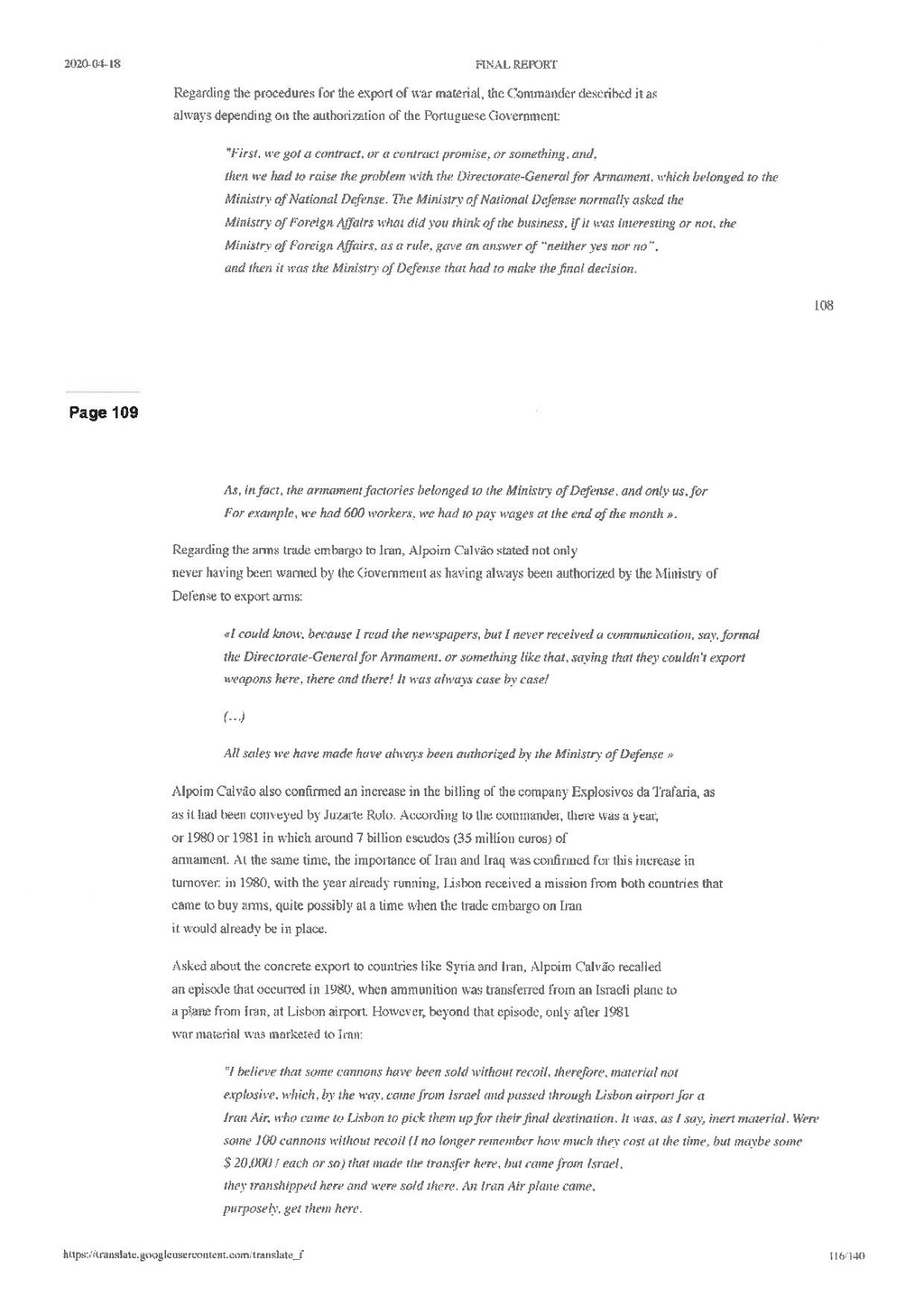Regarding the procedures for the export of war material, the Commander described it as always depending on the authorization of the Portuguese Government:
"First, we got a contract, or a contract promise, or something, and, then we had to raise the problem with the Directorate-General for Armament, which belonged to the Ministry of National Defense. The Ministry of National Defense normally asked the Ministry of Foreign Affairs what did you think of the business, if it was interesting or not, the Ministry of Foreign Affairs, as a rule, gave an answer of “neither yes nor no", and then it was the Ministry of Defense that had to make the final decision.
108
109
As, in fact, the armameni factories belonged to the Ministry of Defense, and only us, for For example, we had 600 workers, we had to pay wages at the end of the month ».
Regarding the arms trade embargo to Iran, Alpoim Calvão stated not only never having been wamed by the Government as having always been authorized by the Ministry of Defense to export arms.
I could know, because I read the newspapers, but I never received a communication, say, formal the Directorate-General for Armament, or something like that, saying that they couldn't export weapons here, there and there! It was always case by case!
(...)
All sales we have made have always been authorized by the Ministry of Defense »
Alpoim Calvão also confirmed an increase in the billing of the company Explosivos da Trafaria, as as it had been conveyed by Juzarte Rulo. According to the commander, there was a year, or 1980 or 1981 in which around 7 billion escudos (35 million euros) of arnament. At the same time, the importance of Iran and Iraq was confirmed for this increase in turnover in 1980, with the year already running, Lisbon received a mission from both countries that came to buy arms, quite possibly at a time when the trade embargo on Iran it would already be in place.
Asked about the concrete export to countries like Syria and Iran, Alpoim Calvão recalled an episode that occurred in 1980, when ammunition was transferred from an Israeli plane to a piane from Iran, at Lisbon airport
. However, beyond that episode, only after 1981 war material was marketed to Iran:
"I believe that some cannons have been sold without recoil, therefore, material not explosive, which, by the way, came from Israel and pussed through Lisbon airport for a Iran Air, who came to Lisbon to pick them up for their final destination. It was, as i suy inert material. Were some 100 cannons without recoil (I no longer remember how much they cost at the time, but maybe some $ 20,000 / each or so) that made the transfer here, but came from Israel, they transhipped here and were sold there. An Iran Air plane came. purposely, get them here.
